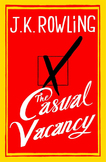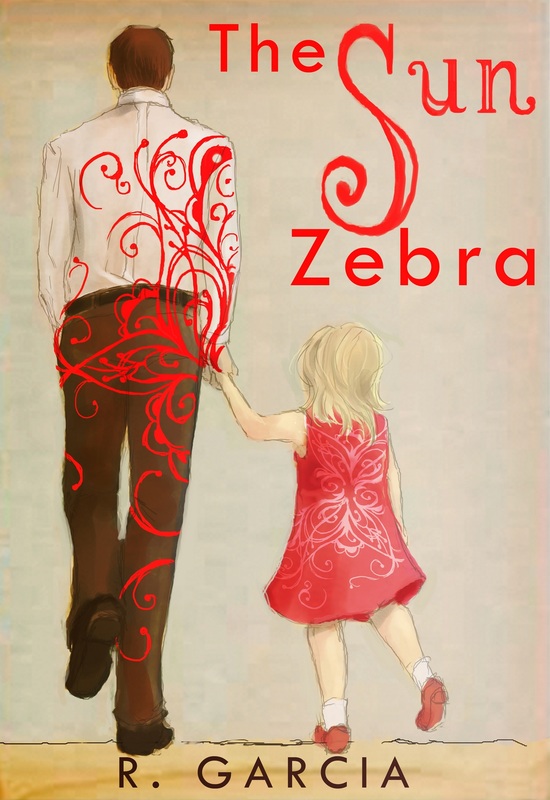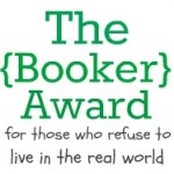If you like this blog you can have links to each week's posts delivered to your e-mail address. Please click here.
|
We hear a lot these days that e-books will replace print books, but the folks at TeachingDegree.org have researched the available data on the subject and put together a graphic that indicates otherwise. They suggest that e-books and print books will co-exist occupying different niches. Take a look at the graphic below and let us know what you think. ***
If you like this blog you can have links to each week's posts delivered to your e-mail address. Please click here.
6 Comments
If you buy a print book, the book IS yours. You bought it, it belongs to you. No can one can take it away from you and you can sell it if you please, or family members can inherit it if you pass away, and they can later donate it to a library. This is not the case with e-books.
Many readers don’t understand that when they buy an e-book from Amazon or other businesses they are not buying a book, they are merely entering into a licensing agreement. You don’t own an e-book, you are just leasing it. And legally you cannot sell your copy of the e-book, have your family members inherit your e-books, or give them away to a library. Amazon created a huge stink back in 2009 when it deleted (of all books) George Orwell’s “1984” from Kindles because the book had been placed for sale on Amazon by a company that did not have the rights to sell it. After some readers brought a lawsuit Amazon clarified and limited the conditions under which they could delete digital content from their customer’s Kindles. This happened again in 2010 with books that contained fictional accounts of incest. This time Amazon deleted the books from the Kindle archive. If customers had the book in their Kindles, the books were not affected, but if they had moved the books to their Kindle archives, the books vanished and could not be re-downloaded. In the first case Amazon gave refunds to their customers, and in the second case they reinstated the book to the archives of readers who had bought them (although they deleted them from the general store due to content violation). But the point is that Amazon HAS the ability to delete the e-book you purchased. In an earlier post I have also covered the fact that Amazon monitors what you read with your Kindle, how you read it, and the highlights or notes you make. In many ways this is a strange new world. I am sitting typing this next to a bookshelf that contains some books that belonged to long-dead relatives. Now these books belong to me and my family. The publishers or vendors of these books cannot take them away from me, in fact they don’t even know I have them, and the books have marks on them whose nature is only known to me and my relatives. These books are in many ways a connection to the past, a bridge between generations. As most of you know I am all for self-publishing and e-books. In fact I believe that when it comes to e-books, their sales pattern is more natural than that of print books. But I wonder what sort of world we are creating. One hundred, or two hundred years from now, what will reading look like for families? Will everything be electronic? Will people be able to inherit and read the books (files?) read by their ancestors and see what comments they typed on them or what passages they highlighted? Or will the reading performed by one generation be cut off from the next? What do you think? *** If you like this blog you can have links to each week's posts delivered to your e-mail address. Please click here. I was thinking the other day about how the rise of e-books has revealed something peculiar about how books sell. Some e-books become best sellers in the moment they are published while others sell much less but consistently overtime. Some e-books do not sell very well for a stretch of time and then “take off” while others sell irregularly alternating between periods of good sales and bad sales (peaks and valleys). There are multitudes of sales patterns and which one will regulate the “sale’s life” of a book is determined by multiple variables. Thinking this about e-books I realized something: print books are unnatural.
Let me explain. First let me clarify that by “print books” I don’t mean those printed by POD (print on demand) services. I am writing about traditionally published print books. There is an aspect of the publishing of these books that is often not understood by people and this is what I call here the “time factor.” When you publish a print book, in the moment the book hits the stores a clock starts ticking. If your book does not achieve significant sales in a few weeks then it gets removed from the shelves along with your dreams and gets sent back to the publisher for a refund. Why is this? In the brick and mortar store, your print book is a physical object that occupies space and competes for said space with other books. The book stores obviously want to make money and what they do is that they give preference to the books that are selling better. So your book has a very narrow window of time to be a success. This is why print books are unnatural. These books cannot develop their natural sales pattern because there is a selection process in favor of the books that sell well from the beginning. This hurdle is overcome by e-books for the simple reason that they are virtual and therefore don’t occupy any space, which means they won’t be “removed” if they don’t sell that well compared to other books. And this is the way book selling should be because each book is different, and it is also the reason why e-books have a greater chance of success than print books. Thus we come to the paradoxical conclusion that an e-book, something that does not exist in the real physical world, is actually more natural than a print book! *** If you like this blog you can have links to each week's posts delivered to your e-mail address. Please click here.  As many of you know I am a serious Harry Potter fan. I think the books are brilliant and that Harry Potter will be remembered as one of the greatest characters of all time. That is why I was interested in J.K Rowling’s new book, “The Casual Vacancy.” Whereas the Harry Potter series started out as books for children, this is a book written for adults. The book will be out in September but the Amazon’s book page is already up and running. So I stopped by to take a look and what I saw left me speechless. Whereas the hardback will sell for $20.93, Rowling’s kindle book will sell for $19.99! I couldn’t believe my eyes. This price even has the old trick of proclaiming it is being “discounted” from the original list price of $35, so you “save $15.01 (43%),” yeah right. It seems that Jo has willingly or unwillingly walked into the traditional publisher’s dishonest scheme of pricing e-books the same as print books. How could she have allowed this to happen? I admire(d) Rowling because she did things differently. She insisted on retaining a certain level of control over the movies to make sure directors would not do crazy things with them and was willing to give up a percentage of her profits in exchange for this. She was a visionary in allowing fans to write fiction based on her characters, and she also opposed the over-commercialization of the Harry Potter franchise. In the discussions on the book page people have pointed out that it is the publisher (in this case Hachette Book Group), not the author, who sets the price. Although this is true, Rowling could have tried to negotiate this beforehand. I can only surmise that she is either ignorant of the whole e-book/print book controversy, she doesn’t care, or she agrees with the publisher’s point of view. Whatever it may be, I am very disappointed. Jo, you gave us Harry Potter and for that I will be thankful forever. However, I will not buy your overpriced book no matter how good it is although when the book does come out, it being a JK Rowling book, I expect it will become a best seller. On the meantime I should take some solace from the fact that in the book tags 326 people have so far voted for the tag “overpriced kindle version,” so for what it is worth I am not alone. In case you have not heard about it, million-book-selling author John Locke signed a book deal with a traditional publisher (Simon & Schuster). However, this deal is remarkable because it only covers the print books. It used to be that the book deals of self-published authors with traditional publishers covered both print books and e-books, but in this deal Mr. Locke will keep control of his e-books (he will be able to sell them at whatever price he pleases). Simon & Schuster will only sell the print versions, which are more expensive, but this caters to the important market of book readers who still buy print books.
This is a development that bodes well for self-published authors. Traditional publishers are beginning to understand that they can't continue defending their print book market by locking self-published authors to deals that will result in e-books being sold at the same price and within the same timeline as print books. And for those still belittling the self-published crowd, I refer you to a stanza from that great Bob Dylan song. Come writers and critics Who prophesize with your pen And keep your eyes wide The chance won't come again And don't speak too soon For the wheel's still in spin And there's no tellin' who That it's namin' For the loser now Will be later to win For the times they are a-changin'. As many of you know, the Borders bookstore chain is closing for the simple reason that it failed to adapt to the digital age. It's competitor, Barnes & Noble, developed its own digital book business and put out an e-reader (the Nook), but now is losing money and was reported last year to be holding discussions about a possible sale. The problem is that hardcover books are the most lucrative business for these stores and their sales have taken a hit from readers who are increasingly unwilling to buy these books. Will the remaining brick and mortar stores like Barnes and Noble disappear or will they streamline and transition into the 21st century? At the moment no one knows for sure but there are many enthusiastic voices out there calling for their demise and that of print books. However, I am not one of those voices.
Don't get me wrong, I think we are gaining a great deal with the advent of e-books and online publishing. But there are things about the experience of a printed book that we cannot reproduce digitally. For example the feeling of the texture of the paper in your fingertips, the sound it makes when you turn the pages, and that smell that emanates from very old books. It is also said that e-books are forever. I am not sure this is true, but even if it is, I think there is something unique about the ephemeral. The fact that print books are fragile and "mortal" makes us have a certain disposition towards them that we will never have for e-books if they indeed last forever. After all, doesn't our respect for life come from the fact that we can die? Another thing about print books is that they can record history. These books can be thrown and dropped, they can get damaged by moisture and mold growing on them, they can get stained, and they can be marked. Many people have old books with certain marks or damage in them which they treasure because of the significance of those marks or damage. It is sometimes observed that "a face without wrinkles is like a book in which nothing has been written". Well, e-books are just such a face. If e-books can last forever, then they will look the same 100 years from now. Can you imagine a father pointing at the screen of a futuristic version of an e-reader and telling his son, "This file here was downloaded by your great-grandfather one hundred years ago." Where is the wear and tear? Where is the proof that you have traversed the ocean of time? Where are the wrinkles? But then again, I am someone who enjoyed the vinyl smell that records released when they were opened for the first time, and also liked the fact that by looking at the grooves of the record I could tell whether the song was a ballad or not. These and other sensory experiences were lost when CD's came along. Of course, this is just me having nostalgia for some things we lost and for others we will maybe lose with ongoing modernization. In any case, the odds are that the new generations will never miss them. So go ahead and look to the future, I am doing that too, but I can't help keeping an eye on the past. |
I am a tinker, tailor, BlogrollLaura Novak
Barbara Alfaro Suzanne Rosenwasser Sunny Lockwood Christine Macdonald Jennie Rosenbaum Kristen Lamb Joe Konrath Sweepy Jean Ingrid Ricks The Jotter Robert David MacNeil Molly Greene The Passive Voice Third Sunday Blog Carnival Marilou George Laura Zera Jeri Walker-Bickett Lia London Categories
All
Archives
April 2020
|



 RSS Feed
RSS Feed



